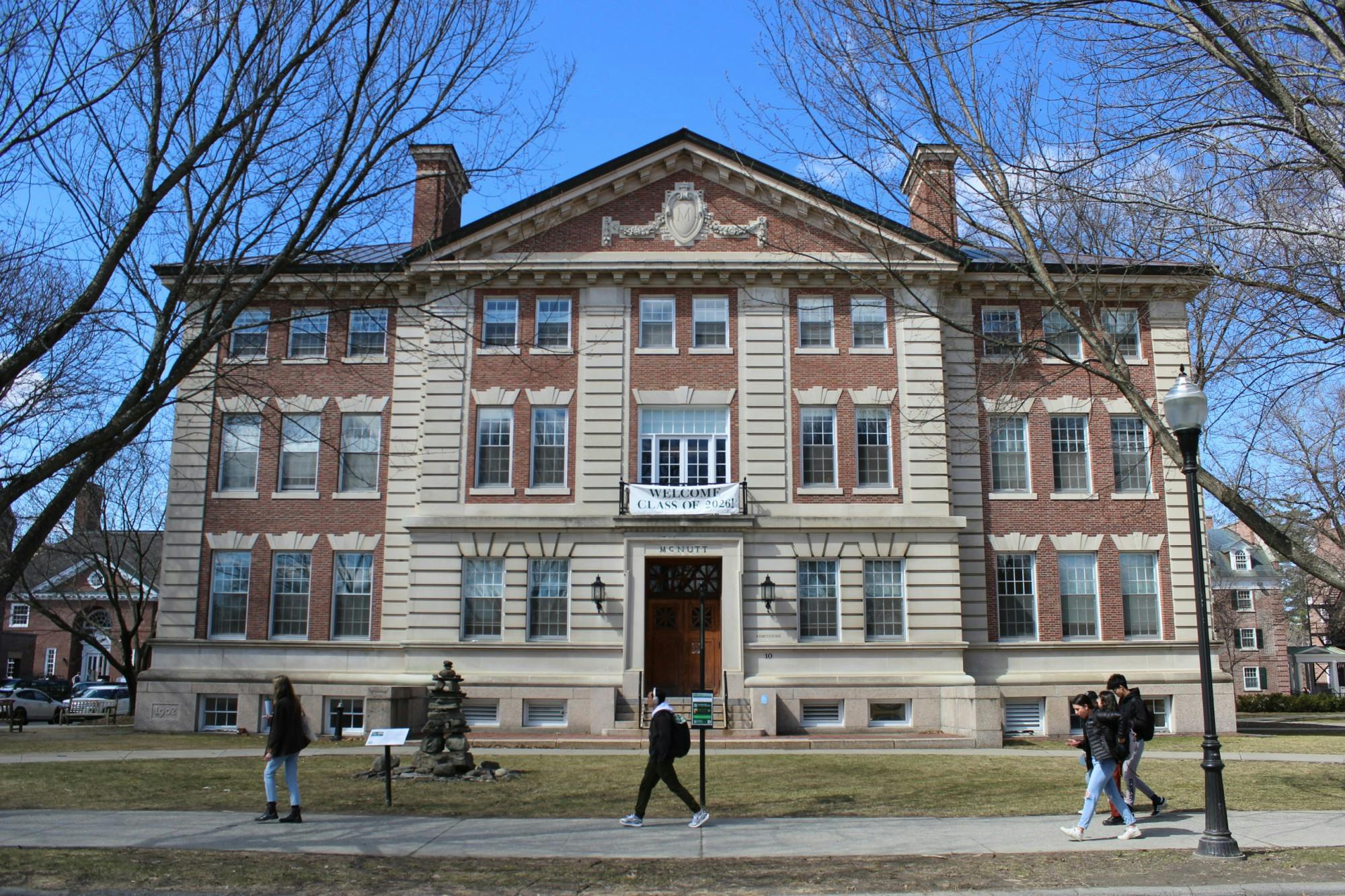In response to the ongoing Russian invasion of Ukraine, the College has offered academic, mental health and financial support to the five Ukrainian undergraduate students at Dartmouth, according to Antonina Zakorchemna ’23, Marta Hulievska ’25 and Nathan Syvash ’25, who are from Ukraine.
As the events of the war continue to unfold, Ukrainian students at Dartmouth have faced uncertainty in settling their summer plans. For students seeking to stay on campus through this summer, housing availability and readjusted financial aid for the summer term have yet to be determined, according to Hulievska. .
Over spring break, most Ukrainian students stayed on campus or traveled to other parts of the United States. Zakorchemna, who has spent the past two years in Ukraine, returned to Dartmouth after the break.
Following the onset of the COVID-19 pandemic, Zakorchemna stayed in the city of Kyiv in Ukraine. She said that she stayed in a bomb shelter when the Russian invasion started before rejoining her family and evacuating to Poland. After considering the impact of the war on her family, Zakorchemna said she decided it was time to come back to Dartmouth for the spring term. While in Ukraine, she took a gap year and worked for a startup.
“I didn’t want to be a burden on my family by using resources, so I came back and Dartmouth was very, very supportive to help me come back,” Zakorchemna said.
After being away from campus for two years, Zakorchemna said her return was warm and welcoming. Although she said it has been tough to balance academics while the war continues in her home country, Zakorchemna said she appreciates having an element of normalcy on campus.
To support the academics of its Ukrainian students, the College authorized incomplete grades for students to finish winter term, according Hulievska. Hulievska, a student from eastern Ukraine who utilized this resource, said she finished work for her classes at the end of spring break.
Once the invasion of Ukraine began, Syvash said worries faced by many of his classmates, such as searching for summer internships or research opportunities became a lower priority.
“It’s like how [Ukrainians] say ‘you don’t get [the] flu when there’s a war,’” Syvash said. “It’s the same logic, you don’t have problems like that when there is war.”
Similarly, Zakorchemna said that the war has changed her perspective on studying. While Zakorchemna’s “biggest struggle” during her freshman year was submitting her homework on time, her main concern is now her family’s safety, she said.
To support the wellbeing of Ukrainian students, the College has reached out to students to create a support group, according to Zakorchemna. Although the group has not yet met, Zakorchemna said she is “grateful” for the College’s resources.
Hulievska said that Ukrainian students experienced the “most dire” need when it came to financial support. By readjusting her financial aid, Zakorchemna said the College made it possible for her to afford coming back for the spring term. Financial aid packages for the 2022-2023 academic year have not yet been announced, according to Zachormena, but she said she is hoping for a similar plan with some key adjustments: Currently, Zakorchemna said her financial aid package includes expected leave term earnings of $1,500, about which she expressed concern.
“There’s no way I would be able to earn this amount this summer because of the war and I’m not even sure I can come back home,” Zakorchemna said. “And I have to support my family who are refugees.”
Facing similar financial difficulties, Syvash said that his family no longer has income and now depends on the government and army for support, making his readjusted financial aid package particularly “meaningful” for him. Hulievska also said that she feels that the College has “taken care” of the current financial needs of its Ukrainian students and that she hopes it will be the same for next year.
Ukrainian students have also encountered challenges planning for the summer. According to Hulievska, there are some students considering volunteering in Poland and reuniting with family members who have evacuated to parts of Europe.
“I hope the war ends by summer and I can come back to Kyiv and do any volunteer work to rebuild my country on-site,” Zakorchemna said. “If the war doesn’t end, which I really hope [won’t] be the case, I don’t really have a plan yet. I’ll probably have to stay over the summer.”
When Syvash left for Dartmouth on Aug. 7, he had intended to return home in the summer. He said the war has now made that “impossible.”
“I really don’t have a home to come back to anymore, so it’s either I stay on campus or I go with my host family [in Michigan],” Syvash said.
As far as further supporting its Ukrainian students, Syvash added that the College should accept more students from Ukraine. According to Syvash, Dartmouth regularly accepts two Ukrainian citizens each admissions cycle.
“We need to rebuild our country that’s been destroyed and having more people with a [Dartmouth] education [may] be helpful,” Syvash said.




